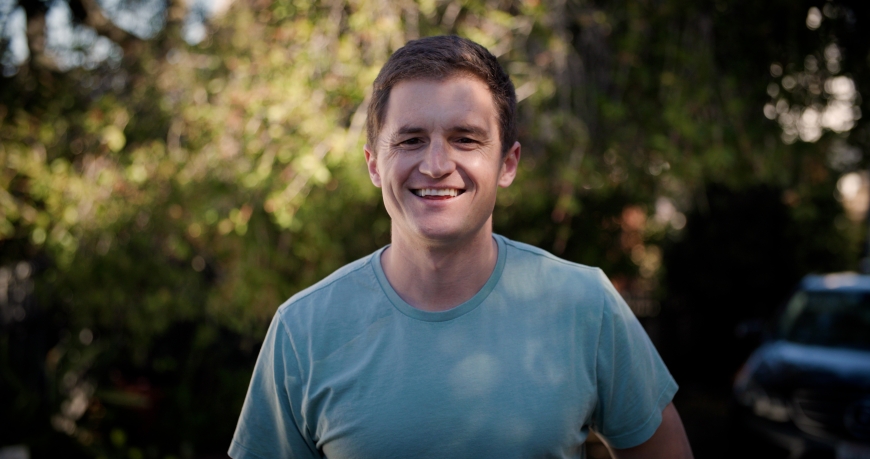Sam Steyer
Building a green economy will take innovation and organization, but it will also take a lot of hard work. Someone, or more accurately lots of people, has to do the actual installation of solar panels, building of wind turbines, and construction of the rest of the renewable infrastructure.
That’s where Sam Steyer, A.B. ’11, comes in. In March 2021, he co-founded Greenwork to match job seekers and potential employers. The company’s motto: Build the Future.
“We’re helping electricians, solar technicians, construction project managers, drivers – people in frontline roles,” Steyer said. “It doesn’t have to be clean energy specifically. We are very excited to work with electric vehicle companies, green construction companies, even companies that do something that we think is not overtly environmental but is part of modern infrastructure, like expansion of broadband.”
Steyer became interested in climate while at the Harvard John A. Paulson School of Engineering and Applied Sciences (SEAS). He studied applied mathematics at SEAS, and by his second year was already involved in some of Harvard’s climate-related extracurricular activities.
It took him a few years after graduation to figure out how best to put all his interests together. After earning a master’s degree in computational mathematics at Stanford University, Steyer co-founded Station A, a company that helps commercial property owners find the best clean energy providers, with three friends.
The idea for Greenwork came out of Steyer’s time on the campaign trail with his father Tom Steyer, who ran for the 2020 Democratic presidential nomination. Sam saw numerous climate-related endeavors while traveling with his father, from tree-plantings to the largest wind tower manufacturing facility in the country, and quickly became enamored with the combination of environmentalism and job creation such facilities promised.
“We were going to solve climate change by also rebuilding our country in other good ways, like making internet access and transportation more accessible,” Steyer said. “It was going to create millions of new jobs, make us rethink how employment works, and make those jobs more supportive and inclusive. I wanted to start a company that played a small part in a broader mission to bring that vision about.”
For Steyer and Greenwork, that “small part” means finding jobs for people working on the frontlines of renewable energy and climate-conscious technology. His organization currently works with multiple schools across California, as well as more than 20 employers.
Focusing on frontline workers means many of Greenwork’s users don’t have four-year college degrees. The platform has a very diverse user base, Steyer said, representing numerous racial and gender identities, different socioeconomic backgrounds, and people who have been previously incarcerated.
“Many more of our users come from two-year community college programs, apprenticeship programs, Conservation Corps and Americorps programs,” Steyer said. “We work with employers who have good practices to support the success of people from all backgrounds.”
Along with matching job-seekers and potential employers, Greenwork also offers supplemental services such as help with resumes and cover letters, advice on purchasing a reliable car to get to and from job sites, and building a peer network to share experiences.
The company on its surface might not seem like it has much to do with applied mathematics. But Steyer said at its core Greenwork uses computation to mimic human judgment when it comes to recommending the right job-seeker for the right company.
“I loved learning STEM (science, technology, engineering and mathematics), and a lot of our job seekers, in different contexts, are learning STEM,” Steyer said. “They’re learning electrical engineering or mechanical engineering, and I think I have empathy and excitement for what that process is like.”
Press Contact
Matt Goisman | mgoisman@g.harvard.edu
